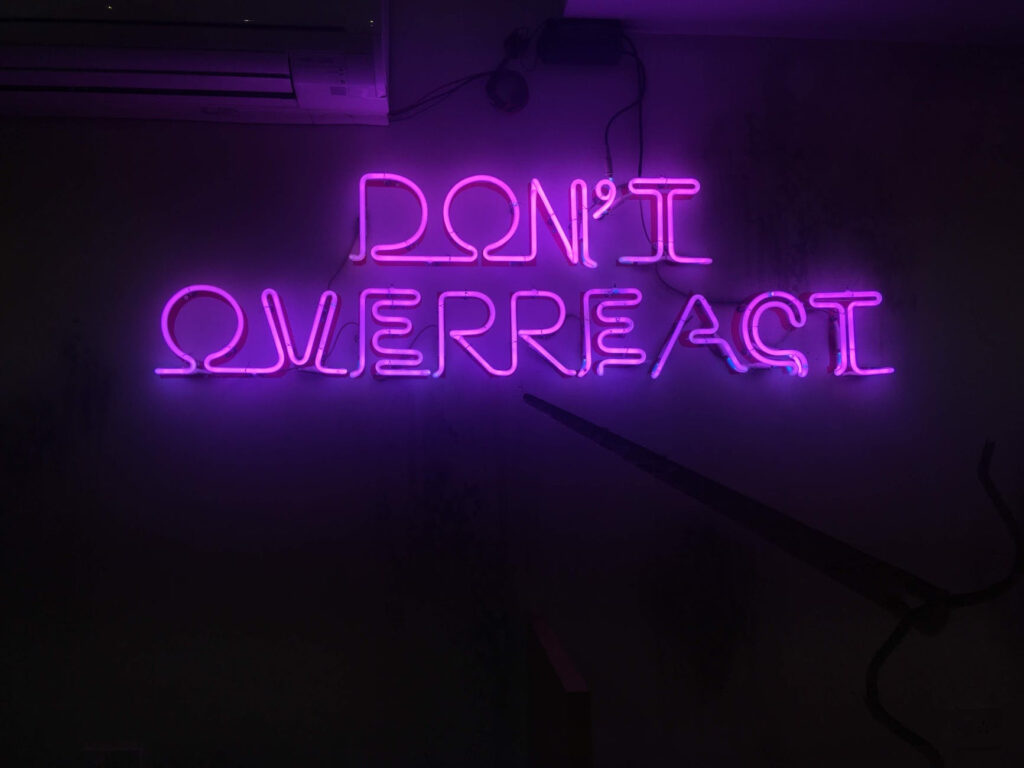
An Overreaction can be described as an irrational, emotional reaction to some situation, leading to a response that is more forceful than is justified or can be considered reasonable.
When faced with an undesirable situation, our immediate instinct is typically to switch to self-preservation mode. In the absence of information we try to fill the gap with what often turns out to be the ‘worst case scenario’. The problem is that sometimes we end up doing more harm than good.
The impact of overreacting not only affects us, but potentially anyone else involved in the situation we are responding to. In fact, it can make the situation worse.
Interestingly, when we respond without the benefit of information, our response typically betrays our deep rooted fears, or even stereotypes, that might have shaped our expectations.
When we expect bad to happen – especially as a result of past experiences – the slightest resemblance can lead us to conclude that this IS in fact the reality. Put another way, our perception of a situation is often shaped by our expectations.
The bottom line: An overreaction is like using a sledge hammer to drive in a thumb tack. It will get the job done, but the damage can be devastating!
O. N. Rowe
We can learn to minimize overreactions by pausing before we respond; by considering the possibility that we could be wrong; and by taking steps to gather as much information as we can, or as we need, to help with applying an objective response.
“Life is 10% what happens to you and 90% how you react to it.” – Charles R. Swindoll


